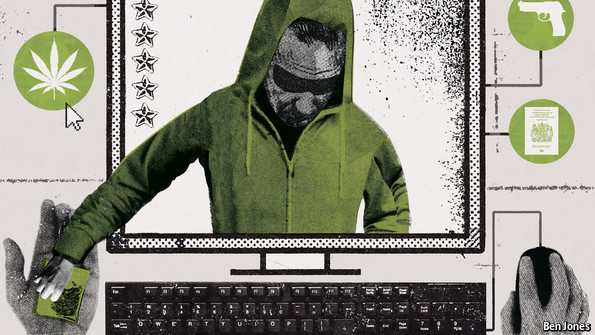THE first ever e-commerce transaction, conducted by students
from Stanford and MIT in the early 1970s, involved the sale of a small
quantity of marijuana. For decades afterwards, the online drugs trade
was severely constrained by the ability of law enforcement to track IP
addresses and the means of payment. The trickle of transactions
threatened to become a flood with the emergence a few years ago of Silk
Road, a drug-dealing site on the “dark net”. These e-depths cannot be
reached through a normal browser but only with anonymising software
called Tor. Buyers and sellers transact there pseudonymously in bitcoin,
a crypto-currency.
Silk Road was shut last year with the arrest of Ross
Ulbricht, the 29-year-old American whom investigators believe to be
Dread Pirate Roberts, the site’s founder. Mr Ulbricht is due to stand
trial in New York next January on charges that include computer hacking
and money laundering. But law enforcers who predicted that Silk Road’s
demise would mark the beginning of the end for online black-market
bazaars were wrong. Instead, dozens of dark-net Amazons and eBays (also
known as crypto-markets) have sprung up to fill the void. They are not
only proving remarkably resilient but expanding their offerings and
growing more sophisticated.
Keep reading on The Economist >>

Muy buen material en tu blog, todo explicado a la perfección, muchas gracias por la información para descifrar claves wifi
ResponderEliminar